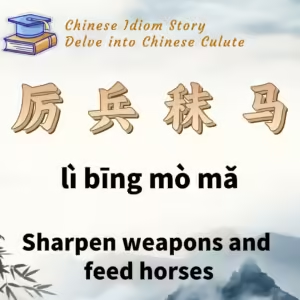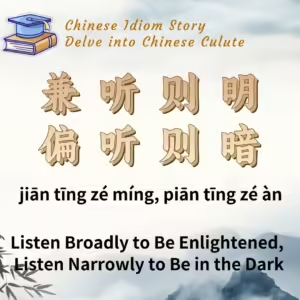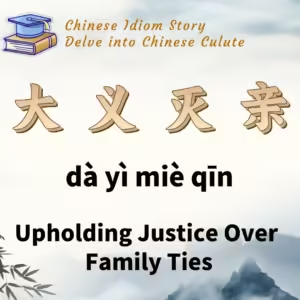
Chinese Idiom: 唯命是听 (Wei Ming Shi Ting)
English Translation: Obey commands unconditionally
pīn yīn: wéi mìng shì tīng
Idiom Meaning: This idiom refers to someone who follows orders or commands without question, indicating absolute obedience and submission.
Historical Source: Zuo Zhuan (左传) – “The Commentary of Zuo,” specifically from the 12th year of Duke Xuan.
Idiom Story:
During the Spring and Autumn period, the small state of Zheng found itself caught between the warring states of Jin and Chu. In 597 BC, after forming an alliance with Chu at Chenling, Zheng secretly sought aid from Jin, which prompted Chu’s King Zhuang to send a large army to attack Zheng.
Zheng’s capital was soon besieged by Chu forces. Faced with the imminent threat, Duke Xiang of Zheng sought a divination to determine whether he should plead for peace with Chu. However, the oracle’s response was unfavorable, leading to despair among the citizens and ministers, who believed that seeking peace would be futile. Consequently, they decided to reinforce the city’s defenses.
Despite their efforts, after being besieged for over three months, Zheng’s capital eventually fell to the Chu army. Duke Xiang, stripped to the waist and leading a sheep as a symbol of submission, approached King Zhuang of Chu to express his surrender. He stated, “I have failed to act according to the will of Heaven, which has angered you and brought ruin upon my state. It is my fault. I dare not defy any command you give; I will obey unconditionally.”
Duke Xiang further promised that if King Zhuang would consider their historical alliance and allow Zheng to become a vassal state of Chu, they would serve Chu loyally.
Recognizing Zheng’s complete submission, King Zhuang agreed to Duke Xiang’s request. He commanded his troops to withdraw thirty miles and allowed Duke Xiang to reaffirm their alliance with a new treaty. This story illustrates the concept of “唯命是听,” emphasizing total compliance to authority.






